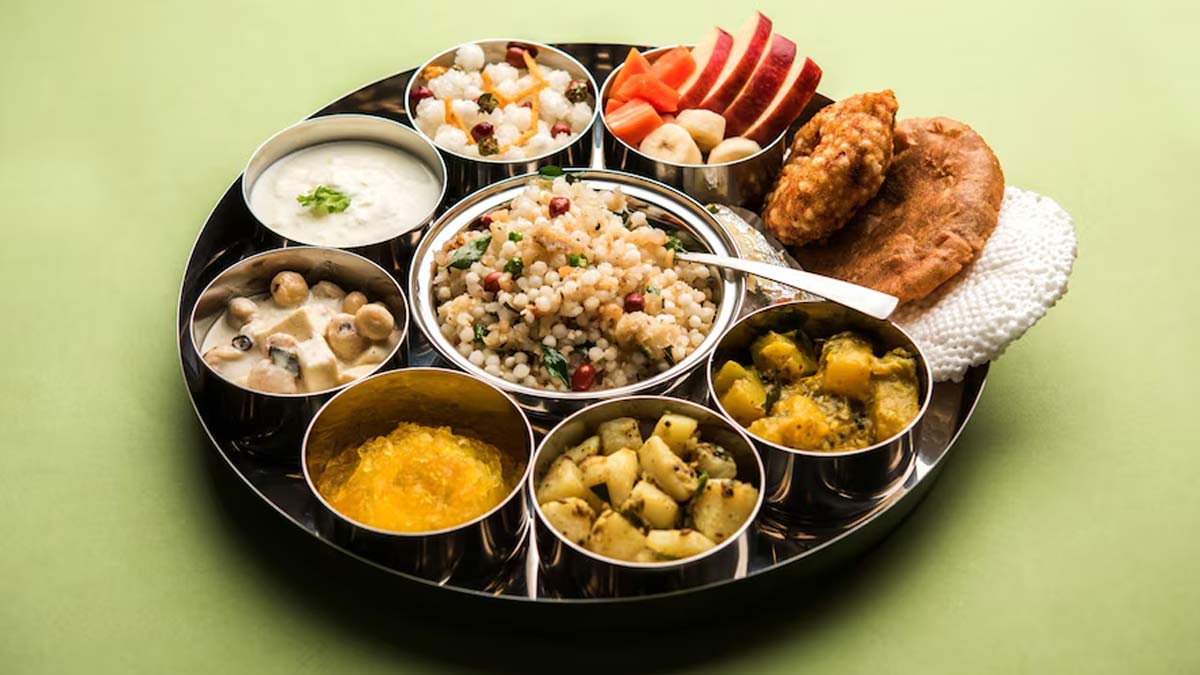
Many people in India and around the world arecurrently celebrating Navratri, a Hindu festival honouring the goddess Durga. Observed twice a year—Chaitra Navratri in the spring and Sharada Navratri in the fall — the ongoing Sharada Navratri runs from October 3 to October 12.
Table of Content:-
While festivals bring joy, they often come with the temptation to indulge in rich foods, which can be challenging for those managing health conditions like Irritable Bowel Syndrome (IBS). To help people with IBS navigate their diet during Navratri, OnlyMyHealth spoke with Dr Pradeepta Sethy, Director of Gastroenterology at Medica Super Specialty Hospital, who offered valuable tips on maintaining a balanced diet during the festivities.
Also Read: Expert Explains The Best Way To Treat Irritable Bowel Syndrome
Living With IBS![]()
IBS is a common digestive problem that affects more than 10% of the global population, according to a 2023 study published in the Journal of Neurogastroenterology and Motility.
People with IBS report symptoms that include abdominal pain and cramps, and many complain of experiencing frequent diarrhoea, constipation, or both.
While the exact cause of IBS is currently unknown, it is often classified as a neurogastrointestinal disorder because it's caused by issues with how the brain and gut coordinate to help the digestive system function.
Some of the common triggers of IBS include stress and certain foods, which may vary from person to person.
What Diet Modifications Can Help People With IBS During Navratri?![]()
According to Dr Sethy, it is crucial that individuals with IBS maintain a balanced diet to manage symptoms.
"Identifying personal triggers through food journaling and consulting a healthcare professional can help tailor a suitable diet. By avoiding or limiting these foods, individuals with IBS can significantly improve their quality of life and reduce the frequency and severity of their symptoms."
The doctor notes that while traditional Navratri fasting may be challenging for individuals with IBS due to dietary restrictions, modifications can be made to accommodate their needs.
Opt for gluten-free grains like buckwheat or amaranth, and avoid gas-forming items like legumes and cruciferous vegetables. Incorporate probiotic-rich foods like yoghurt to aid digestion and stay hydrated. Avoid spicy, fried, or overly processed foods to prevent flare-ups, while maintaining smaller, frequent meals to reduce strain on the digestive system.
IBS-Friendly Foods To Include In Your Diet![]()
Here are some IBS-friendly foods that can be incorporated into a Navratri fast:
- Fruits: Apples, bananas, pears, and berries (except strawberries)
- Vegetables: Cooked or steamed vegetables like carrots, potatoes, and squash
- Grains: Quinoa, rice (especially brown), and oats
- Dairy: Yogurt (plain, Greek) and cheese (cottage or paneer)
- Nuts and seeds: Almonds, walnuts, and flaxseeds
- Legumes: Lentils and chickpeas
- Spices: Cumin, coriander, and turmeric
- Fluids: Water, coconut water, and herbal tea
Also Read: Low FODMAP Diet For IBS: A Gastroenterologist Shares What You Should Have And Avoid
Foods To Avoid
People with IBS should avoid common Navratri fasting foods that can trigger flare-ups, such as:
- Legumes (rajma, chana)
- Gas-forming vegetables like cabbage and cauliflower
- Gluten-containing grains like wheat, which can irritate the gut
- High-fat fried foods like puris and pakoras
- Spicy foods
- Artificial sweeteners
- Carbonated drinks
Takeaway
In conclusion, Dr Sethy encourages people with IBS to focus on nutrient-dense, IBS-friendly foods.
He recommends including gluten-free grains like buckwheat and amaranth for carbohydrates, boiled potatoes for energy, yoghurt for gut health, and soaked almonds and walnuts for healthy fats. Additionally, incorporate fibre-rich bananas and steamed vegetables like carrots, stay hydrated with water, coconut water, or herbal teas, and eat small, frequent meals to avoid digestive stress.
Also watch this video
How we keep this article up to date:
We work with experts and keep a close eye on the latest in health and wellness. Whenever there is a new research or helpful information, we update our articles with accurate and useful advice.
Current Version



.jpg)